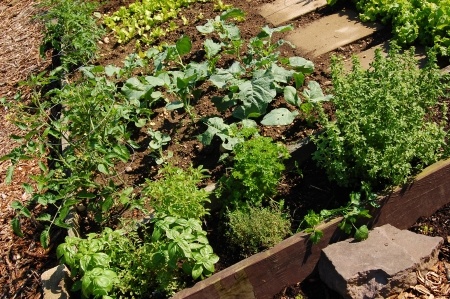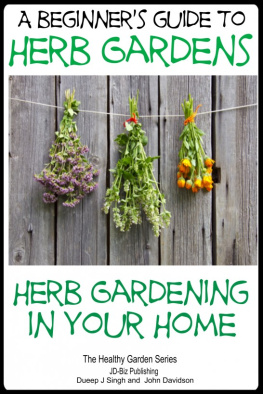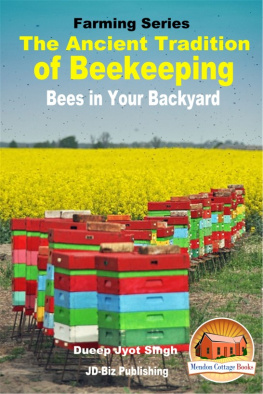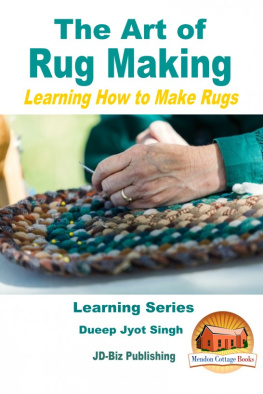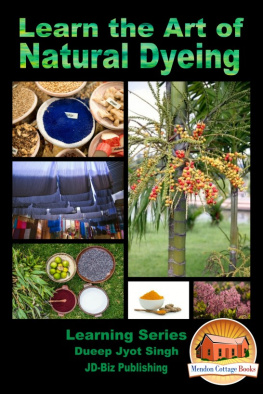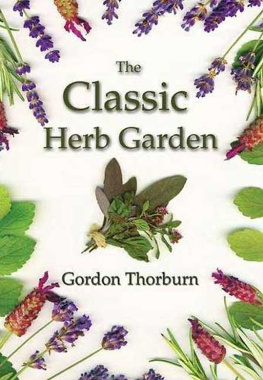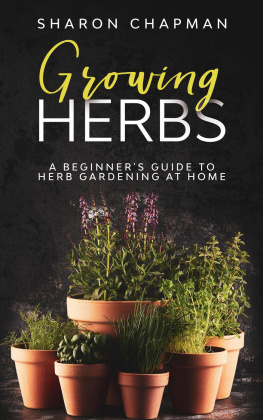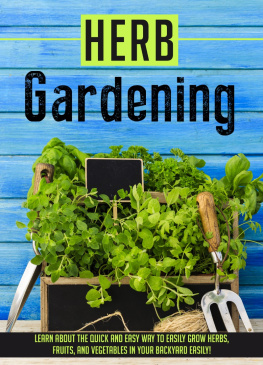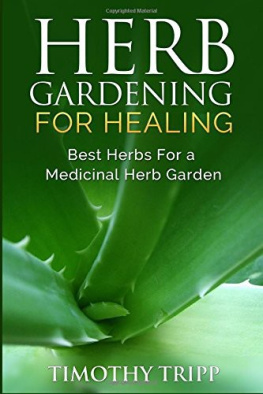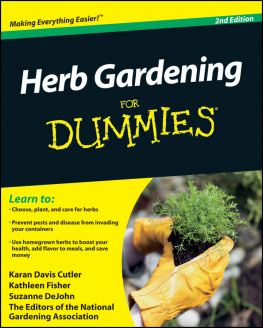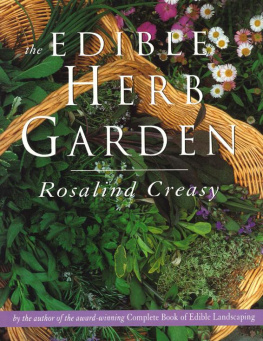A Beginners Guide to Herb Gardens
Herb Gardening in your Home
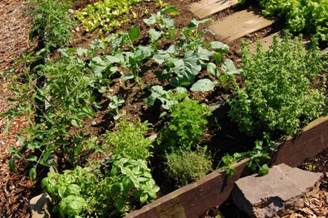
Dueep J. Singh and John Davidson
~~~
Smashwords Edition
Healthy Gardening Series
JD-Biz Publishing
All Rights Reserved.
No part of this publication may be reproducedin any form or by any means, including scanning, photocopying, orotherwise without prior written permission from JD-Biz CorpCopyright 2014
All Images Licensed by Fotolia and 123RF.
Disclaimer
The information is this book is provided forinformational purposes only. It is not intended to be used andmedical advice or a substitute for proper medical treatment by aqualified health care provider. The information is believed to beaccurate as presented based on research by the author.
The contents have not been evaluated by theU.S. Food and Drug Administration or any other Government or HealthOrganization and the contents in this book are not to be used totreat cure or prevent disease.
The author or publisher is not responsiblefor the use or safety of any diet, procedure or treatment mentionedin this book. The author or publisher is not responsible for errorsor omissions that may exist.
Warning
The Book is for informational purposes onlyand before taking on any diet, treatment or medical procedure, itis recommended to consult with your primary health careprovider.
Smashwords Edition, License Notes
This ebook is licensed for your personalenjoyment only. This ebook may not be re-sold or given away toother people. If you would like to share this book with anotherperson, please purchase an additional copy for each recipient. Ifyoure reading this book and did not purchase it, or it was notpurchased for your use only, then please return to Smashwords.com and purchaseyour own copy. Thank you for respecting the hard work of thisauthor.
Table of Contents
Introduction
I have already written about how to make aherb garden in another gardening book- How to make a Herb Garden in our Gardening series, but the gardener cum herbalist is going toget an even more extensive knowledge about how to make afull-fledged herbal garden in this book.
Perfumes, juices, oils and other productsextracted from seeds, leaves, shoots, and bark of the herbs havebeen used since the earliest times in religious ceremonies, and incooking. Magicians used them in making mysterious potions toimpress the credulous public.
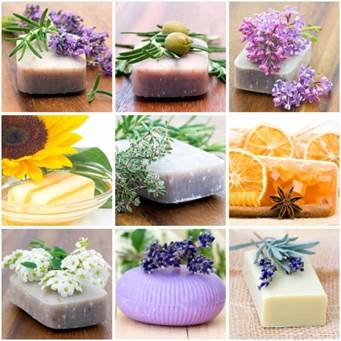
Herb essential oils along with parts of herbshave long been in use down the millenniums to make natural beautyproducts.
The oracles of Delphi were women who had beenintoxicated on fumes of deadly nightshade, which would make themhallucinate. And then with bay leaves in their mouths-these leaveswere considered sacred to Apollo they used to predict the future.No wonder not many could understand them or interpret theirsayings. So each hearer chose the one which suited his requirementsthe best, and believed the Gods had spoken.

A Roman soldier millenniums ago would notwant to miss his essential oil and herbal massage, with ascrapingstrigilafter a hard days workout in the battlefield. Nor does his many times descendant, after ahard days work out at his desk.
Today, these herbs are usually grown fortheir great value in cooking. That is why it is well worth findinga small place for herbs in any garden. The 21st centuryworld is also slowly and steadily getting back to the idea that theherbal remedies, which were used in alternative medicine in ancientcivilizations of the East and West had curative properties.
The Egyptians, Babylonians, Chinese, Mayans,Aztecs, Greek and other knowledgeable people all over the worldused these herbs, and derived all the healthy benefits of them asoften as they could.
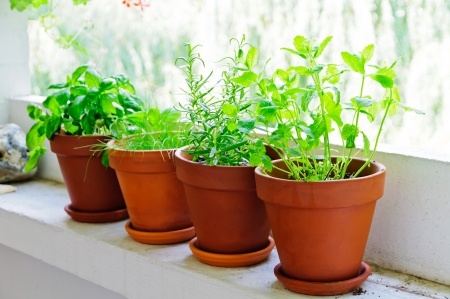
Growing herbs in containers have been inpractice for millenniums, especially when there was not a kitchengarden around.
People of the West, especially theAnglo-Saxons in ancient times did not know much about the healthyaspects of herbs as well as the aromatic and exotic plants grown inthe East. However, they knew all about the curative properties ofthe plants which were grown indigenously and locally. They alsoused these plants for cooking purposes.
Many of these plants were given local names,which described their use even to the simplest rustic user. So ifyou heard about a plant named liverwort it meant it was a plantgood for your liver. These names are still in practice today.
The monks continued the compiling andgathering of the knowledge of these herbs and herbal medicine andevery monastery had a herbal Garden of which to be proud.
All of these monks tended their herbalgardens, and collected the herbs to heal the illnesses of the poorof the parish. In fact, many of the people were taken to the churchto get themselves healed and nursed by the nuns and the monks whenthey were taken ill or when they were wounded in bitterbattles.
The chances of their getting healed werehigh, except for Robin Hood of Sherwood Forest, the famous Earl ofHuntingdon, who when taken ill was put under the care of hisrelative, the prioress of Kirklees Priory who had decided that hehad to die, because she was viciously and jealously built that way!Nothing God-fearing about her, it seems. So she did not use hercuring herbs, but allowed him to be slowly poisoned and thus hedied at the age of 87.
With the dissolution of the monasteries inBritain, this once contained knowledge spread all over the country,and so the knowledge was taught how to grow all the essential herbsneeded for her kitchen, and for her still room in the garden.Anybody who had a piece of land could grow the herbs veryeasily.
WhichHerbs to Grow
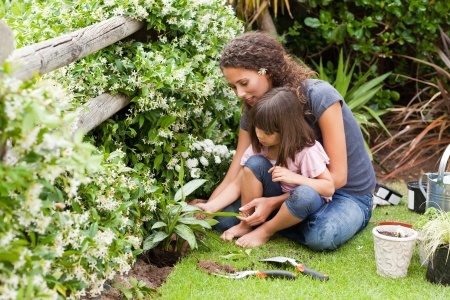
Herbs normally have a spreading habit; thatis why you need to make sure that they are grown in containedspaces, otherwise your garden is going to look messy and unkempt.Also, if the useful portions of the plants are not harvested whenthey are needed, and other plants planted in their place, you aregoing to get a herbal garden overflowing with plans spreading allover the place.
The herbs which you need to grow our going todepend on the location and the size of your garden. However, youcan always begin your Herb Garden by planting mint, chives,tarragon, parsley, fennel, thyme, rosemary, sage bush andsorrel.
Consider them to be the representative plantsof your Herb Garden, which are going to add to your dishes, as wellas help heal your family.
Chives, parsley and thyme have been known tosurvive well in window boxes, even in cities, where the percentageof the chemical pollutants in the air is not so high.
WhereDo You Grow Herbs?
